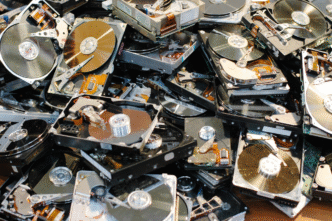In today’s digital age, businesses and individuals alike are becoming increasingly aware of the need for cybersecurity. However, one common misconception still lingers—that deleting files is enough to keep your data safe. Unfortunately, this assumption can leave your sensitive information vulnerable to recovery and misuse. If you’re serious about protecting your data, it’s time to understand why deleting files simply doesn’t cut it—and what you can do instead.
What Happens When You “Delete” a File?
When you delete a file from your computer or external device, you’re not removing the data—it’s just marked as “free space” by the system. Until new data overwrites that space, the original information is still there, fully recoverable using data recovery tools. That means anyone with basic technical skills could retrieve confidential documents, client records, or financial information you thought was gone.
Why This Puts Your Business at Risk
If your organization handles sensitive data—whether it’s employee records, customer information, or proprietary business documents—simply deleting files can put you at serious legal and reputational risk. In industries like finance, healthcare, or legal services, failure to properly destroy data could result in regulatory violations and costly fines. Moreover, leaked information can damage client trust and brand reputation beyond repair.
What You Should Be Doing Instead
To truly protect your data, you need to go beyond basic deletion and use secure data destruction methods, such as:
- Data Wiping:Overwrites data multiple times to prevent recovery. Ideal for repurposing hard drives.
- Degaussing:Demagnetizes storage devices, making data unrecoverable.
- Physical Destruction:Shreds or crushes drives, ensuring data is permanently destroyed.
Partnering with a professional data destruction service ensures that your files are permanently deleted and helps you remain compliant with privacy regulations, such as HIPAA and GDPR.
Benefits of Secure Data Destruction
- Peace of Mind:Know your data is truly gone.
- Compliance:Meet industry and government data security standards.
- Environmental Responsibility:Many data destruction providers also handle responsible e-waste disposal.
Final Thoughts
Deleting a file might seem like the end of its life, but in reality, it’s only the beginning of your data security risks. If you’re disposing of old computers, hard drives, or other storage devices, be sure you’re using proper destruction methods.
Ready to protect your business from data breaches?
Partner with a trusted data destruction expert today to ensure your sensitive information stays out of the wrong hands.
This post was written by Steven Elia Co-Founder and Recycling Director at eCycle Florida. eCycle Florida is a R2 Certified electronics recycling company in the state of Florida. Our processes and procedures are dedicated to the proper destruction and recycling of your electronics. eCycle Florida is your go-to for Pinellas County electronics disposal.













